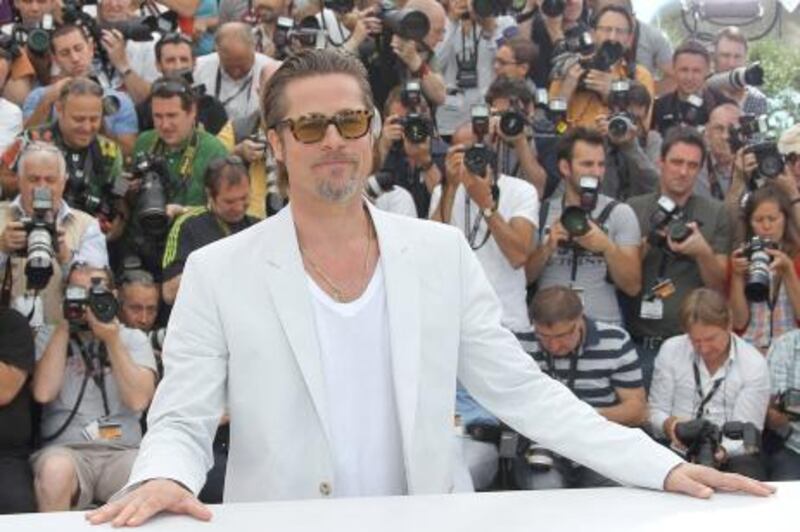There is always one film that gets booed after a press screening at the Cannes Film Festival. This year the distinction went to Terrence Malick's The Tree of Life, a visual essay on the meaning of life that left many in the audience perplexed.
The level of anger was nowhere near that expressed after Lars von Trier's Antichrist played two years ago, but it was no surprise that many were baffled by an idiosyncratic film packed with interior monologues, flashbacks and flashforwards, not to mention a 48-year-old Brad Pitt playing the father of 51-year-old Sean Penn's character.
A family is mourning the death of its 19-year-old son. This is the catalyst for sequences involving dinosaurs, exploding stars, sea creatures, forests and childbirth. For some people, these scenes will provide fodder for invigorating existential debate, for others just boredom. There was a similar response to Stanley Kubrick's 2001: A Space Odyssey in 1968, and it's to Kubrick that the film can best be compared. Critics seemed split between the two extreme reactions to the most eagerly awaited film of the festival.
Contemporary scenes involving Jack O'Brien (Penn) mourning his brother are juxtaposed with scenes from the 1950s of his father (Pitt) giving his three sons a disciplinarian upbringing that contrasts with the gentle love shown by their mother (Jessica Chastain).
Absolutely no one could make sense of what we had seen, but some were blown away by the lyrical quality of every shot. The film is inspired by a poem and Malick tries to create poetry in motion, albeit motion at a tranquil pace.
Malick, as is his wont, did not turn up to the press conference for the film and left it up to Pitt, who also serves as a producer and put his own money into the picture, and Jessica Chastain to do most of the talking. Of course, most of the media directed questions to one of the most famous actors on Earth who is in Cannes with the actress Angelina Jolie.
Dressed in a white suit over a white V-neck jumper, the actor looked every bit the superstar and it seemed odd that he was here defending a film that is so art-house it could play in a gallery just as well as a cinema.
Pitt defended Malick's absence from the press conference by stating: "I don't know why it's accepted that people who make things in our business are then expected to sell them, and I don't think that computes with him. He wants to focus on the making of it, not the real estate, selling the real estate. It is an odd thing for an artist to start something and then be a salesman."
It was a strange choice of words, as clearly artists can talk about their work without making a sales pitch, and there was certainly plenty to say; no other film at Cannes yet has generated such debate.
The actor also deflected some of the more banal questions about the way he brings up his children by joking that he copied his Tree of Life character. "I beat my kids regularly, that seems to do the trick," he quipped.
Given how much attention there was on the Malick film, it's no surprise that the premiere of Nadine Labaki's second film, Where Do We Go Now, was completely overshadowed. It's a shame because the Caramel director has responded to all the films about Lebanon in 1982 by making a comedy about the relationships between Muslims, Christians and Jews in a small, unnamed town.
The Lebanese director has made a marvellous ensemble drama about the women working together to ensure that sectarian violence does not come to their town. The first hour, involving murder, deceit and cover-ups, is particularly good, as is the decision to punctuate the film with songs. The second half becomes a subversive comedy as the women club together to keep the men from going to war with one another.
The premiere party was given by the Doha Film Institute, which had invested in the film, and was in full swing when the director arrived at 1.30 in the morning. But the day belonged to the shy and reclusive Terrence Malick and no amount of booing and bewilderment was going to change that.






